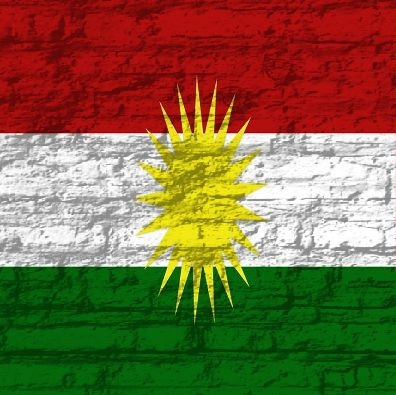Washington Kurdish Institute | May 9, 2025
The recent “Conference on Kurdish Unity and Common Stance” in Qamishlo marked a major step toward strengthening Kurdish unity and forging a collective political vision for the future of Syria. Held behind closed doors over two days and concluded on April 26, the conference brought together more than 400 delegates from West, North and South Kurdistan, and various Syrian regions. Participants included political representatives, tribal leaders, women’s and youth organizations, cultural figures, and other influential Kurdish personalities.
The conference opened with a moment of silence for the martyrs, followed by a keynote speech from Mazloum Abdi, General Commander of the Syrian Democratic Forces. Hamid Darbandi, representing President Masoud Barzani, also participated and addressed the gathering. Messages of support were delivered by the Kurdistan Communities Union (KCK) and other Kurdish parties.
Throughout the sessions, participants emphasized the urgency of Kurdish national unity in Syria and the need for a common platform to secure Kurdish rights in a future democratic state. The conference concluded with the adoption of a comprehensive resolution, unanimously agreed upon, that outlines Kurdish aspirations both within the Syrian national framework and in a distinctly Kurdish context.
Key points regarding Syria’s future include recognition of Syria as a multinational, multicultural, and multi-religious state; the establishment of a decentralized, bicameral parliamentary system; guarantees of religious freedom, gender equality, and children’s rights; protection of Kurdish regional demographics; and the safe return of displaced populations.
In the Kurdish context, the resolution calls for unifying Kurdish regions under a federal system within Syria, constitutional recognition of Kurdish national identity, the reinstatement of citizenship to stateless Kurds, and the formal acknowledgment of Kurdish as an official language. It also demands compensation for victims of policies like the Arab Belt project and the celebration of Kurdish cultural milestones such as Newroz and the Qamishlo Uprising.
The resolution also honored the sacrifices of the Syrian Democratic Forces and called for fair Kurdish participation in all levels of governance, including legislative, executive, judicial, and security institutions. This collective stance was presented to the public in a final statement, reinforcing the Kurdish commitment to democracy, pluralism, and a peaceful political process.
A Legacy of Division, A Moment of Unity
This conference was more than a political event. It was a symbolic response to over a century of imposed division and repression. While Kurds have long held diverse ideological positions — from nationalism to leftism — they remain united in the belief that securing Kurdish rights, whether through independence, federalism, or autonomy, is essential.
That unity has not come easily. For decades, occupying powers — Iran, Iraq, Syria, and Turkey — have exploited Kurdish divisions. Iraq’s Baathist regime, for example, supported Iranian Kurds while brutalizing Iraqi Kurds. Iran responded in kind. Syria, while aiding Kurdish groups in Turkey, denied basic rights to its own Kurdish population. Yet despite this manipulation, Kurdish movements across borders have historically resisted turning against one another. During the Iran-Iraq war, for instance, Kurdish factions on both sides refused to be drawn into direct conflict — recognizing the regimes’ attempts to use them as pawns.
The Qamishlo conference reaffirmed this cross-border awareness and solidarity. Kurds, despite regional and political differences, remain committed to a peaceful, inclusive solution for their people within a future democratic Syria.
The Kurdish people have endured more than a century of systematic marginalization, mass displacement, cultural erasure, and political exclusion. Yet they continue to advocate for rights through democratic means. Their track record speaks volumes. In Syria, the Kurdish-led SDF played a decisive role in defeating ISIS, standing as a secular, pluralistic force in a region destabilized by extremist ideologies.
In Iraq, the Kurdistan Region has offered one of the most stable and democratic models in the Middle East. Despite disputes with Baghdad, the Kurds have remained foundational to Iraq’s post-2003 political structure and have maintained functional diplomatic and economic ties with Turkey since the late 1990s.
Kurdish unity is not only a national goal — it is a regional necessity. It offers a path toward stability and a counterweight to the resurgence of radicalism.
What Should the International Community Do?
First, let’s address the importance of the Kurdish
While the U.S., France, and other allies have expressed support for the Syrian Kurds, their engagement has often been reactive and short-term. Symbolic gestures are no longer enough.
Just days after the Qamishlo conference, Syria’s opposition government — dominated by al-Qaeda-affiliated factions — rejected the conference’s outcomes. This is a critical moment for Western powers to respond decisively. Any path forward for Syria must include guarantees for Kurdish rights. International recognition, reconstruction aid, and the lifting of sanctions should be tied to the inclusion of secular and representative forces: Kurds, Christians, Alawites, Druze, and other groups committed to coexistence.
Meanwhile, extremist elements in Syria are already preparing to govern through militant ideology, amassing foreign fighters and laying the groundwork for a future caliphate. This is a looming threat to regional and global security.
A Roadmap for Inclusion
The Kurdish role in Syria’s future could mirror the success of Iraqi Kurdistan — a partner to the West, a buffer against terrorism, and a model for coexistence. But turning that potential into reality will require more than words. The West must support Kurdish unity efforts with a clear, actionable plan: from backing inclusive constitutional talks to pushing for international oversight and realistic timelines for implementation.
This is not just about the Kurds. It is a test of whether the international community can support democracy and pluralism in one of the world’s most volatile regions.

